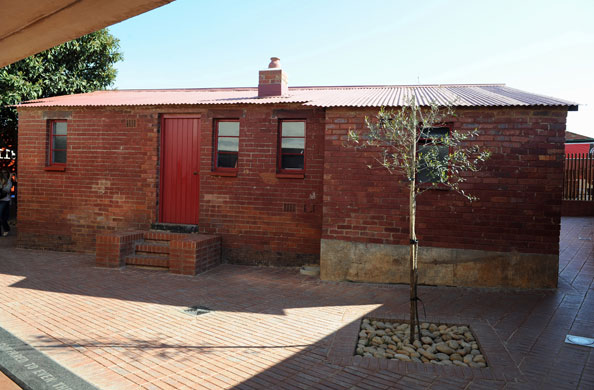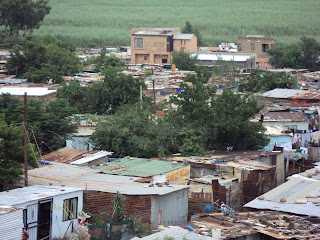Friday, February 5, 2010
Bio Lab #2
What did your biology lab look like?
My freshman year of college I took a biology class and opted out of the lab that went along with it. It seems silly, but I didn’t want to run the risk of having it interfere with baseball practices. My sophomore/junior year (there isn’t exactly a clear distinction between the two) I came to regret that decision upon learning that APU required a lab science in order to graduate. So then, in order to fulfill that requirement, I would either have to retake biology and do the lab this time or move on to a more difficult lab science. I’m now in my final semester, and have officially run out of options so I am taking an intro level biology course with a lab while here in South Africa. The class is basically all review material, but the labs look like this:





It's a major bummer...
Monday, February 1, 2010
Soweto
Johannesburg in general isn’t anything special. For the most part it looks and sounds (even smells) like L.A. There is smog, traffic, overcrowding, and crime. I would have walked away after 3 days not liking the city at all had we not visited Soweto.
Soweto is the most populous black urban residential area in the country. It was founded in 1904 as an “evacuation camp,” where black and Indian South Africans were sent by British officials following a reported outbreak of plague. It became an all black community in 1956 as a result of an apartheid policy that sought to sift black Africans into independent groupings. In 1963 it adopted the name Soweto which stood for SOuth WEstern TOwnships.
Soweto gained national attention on June 16, 1976 when the citizens there protested the government’s new policy to enforce education in Afrikaans rather than English. Police opened fire on a group of students leading to rioting that lasted for days. There is currently a monument in remembrance of the youth who lost their lives during the protest.
In Kliptown (a neighboring township), we visited Freedom Square, a place where the Freedom Charter was adopted as the guiding document of the Congress Alliance – a broad alliance of various political and cultural formations to map a way forward in the repressive climate of the 1950s. The charter was the guiding document of the African National Congress and envisaged an alternative non-racial dispensation in which "all shall be equal before the law."
At one time Nobel Prize winners Nelson Mandela and Desmond Tutu were both residents in Soweto on the now famous Vilakazi Street. The house where Mandela lived now functions as a family museum.

Aside from all of this, the thing that made Soweto such an amazing place was the people. Never before have 53 white kids on a coach bus been greeted so warmly. Everywhere we went people waved, sang, and danced for us, happy that we came to see the way that they lived. At one point I was standing alone outside of the restaurant where we stopped for lunch and a group of men called me over to talk to them. Each one shook my hand wanting to personally welcome me to South Africa. I was shocked, honored, and humbled all at the same time. This truly is an amazing country.










